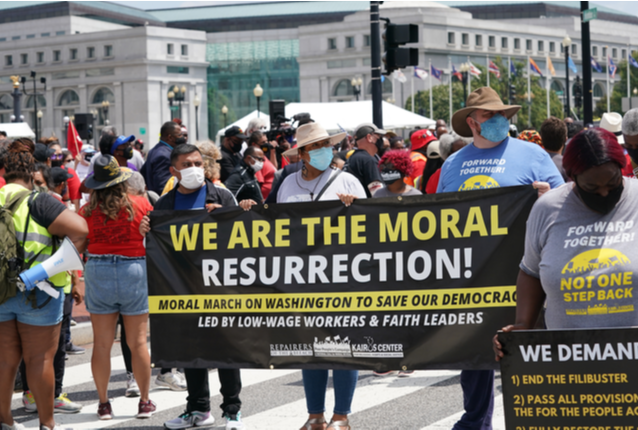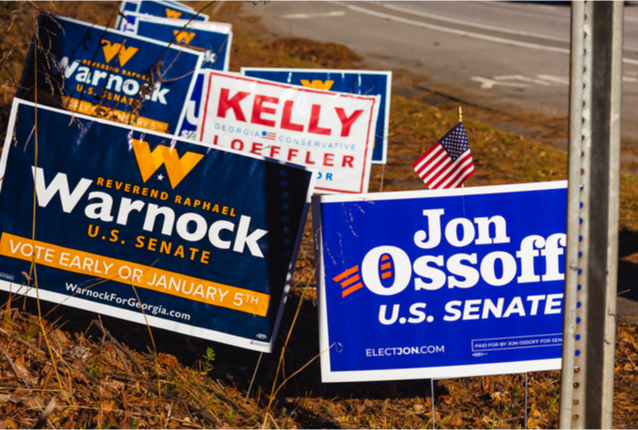On September 26, we join together in celebration of National Voter Registration Day. The holiday provides an opportunity for all to register to vote, and to stress the importance voting plays in a free and open society. National Voter Registration Day also is a sobering reminder of the roadblocks used by governments and some businesses to suppress voter turnout.
Every election year, millions don’t vote. Some simply make the choice not to. Following the 2014 elections, Pew conducted a study that found 35 percent (of those surveyed) cited conflicts with work or school as a reason for not voting. But too many others face unnecessary and discriminatory roadblocks to expressing their will at the ballot box.
More than five decades after President Lyndon B. Johnson signed the Voting Rights Act, states across the country are rolling back years of progress. They are now making it harder for working people to vote – particularly people of color. Strict voter identification decrees are the law of the land in most states, and often are used as a way to keep certain groups from casting their votes. But institutional voter suppression is not solely a product of lawmaking. Businesses also make it difficult, if not impossible, for employees to take time off in order to vote.
Unions of working people have long recognized this problem, and in one particular case, helped secure paid leave on Election Day. In the late 1990s, the United Auto Workers negotiated with General Motors, Ford, and Chrysler to give their employees the freedom to vote without fear of losing pay. The auto companies obliged and now for their employees, Election Day is a paid holiday.
However, millions of other working men and women do not have the same luxury. Even when businesses allow employees to vote without penalty, a patchwork of state laws compounds the challenge for many.
Currently, there is no existing federal law ensuring paid or unpaid leave for voting. A majority of states do have laws in place but they vary greatly. Thirty-two states require employers to provide employees with time off to vote, but only 23 of those states provide paid leave on Election Day. The remaining 18 states offer no laws ensuring working people the freedom to vote during work hours.
Take Mississippi, for example. The state has no leave law for voting. During the 2016 presidential election, some working at the Nissan plant in Canton, Mississippi, were not given the freedom to vote. Employees there often commute several hours to and from the factory, leaving them little to no opportunity to vote while the polls are open. Due to their grueling travel and work schedules, people working at the factory asked for time off to vote, but were repeatedly denied. This move is unsurprising, given that Nissan engaged in voter suppression tactics of its own when employees were deciding whether or not to join in union.
Even in the face of a tangled web of laws and suppression efforts, working people can win the freedom to vote. We know what unions have accomplished when they stress the importance of voting. Elections in states like Virginia and New Jersey are now just weeks away, and as a nation, we are a mere 13 months from the midterm elections. It’s vitally important we protect our right to vote, and ensure workplaces provide ample opportunity for all to go cast their ballots.
Do you receive time off from work to vote? Sound off in the comment section below.




